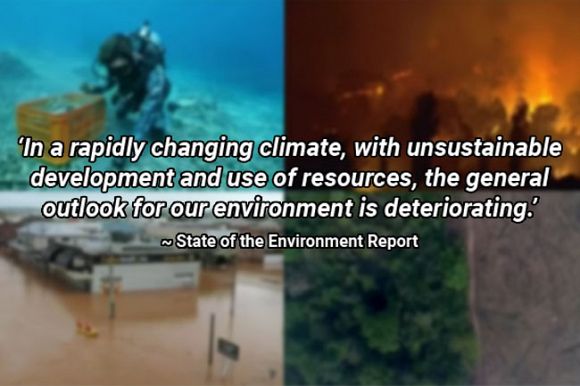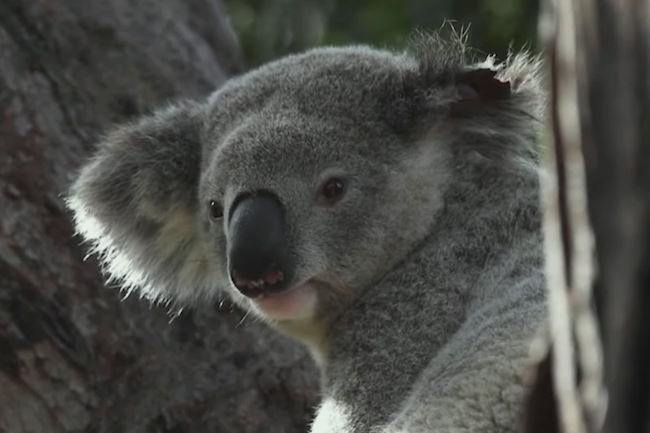The battle over how many billion humans planet Earth can safely carry is growing exponentially, writes Sue Arnold.
POPULATION ISSUES create considerable angst. Touchy subjects such as race, religion, culture, poverty, environment, carbon emissions, biodiversity loss, abortions, birth control and discrimination against women, are all implicated in these discussions.
Clear divisions are emerging.
For those in support of more and more people, pronatalism is resurging. According to the U.S.' National Post, pronatalists fear the world is on the verge of “demographic collapse”, spooked by declining birth rates. They warn the consequences will be dire, including growing populations of pensioners, a decline in innovation and living standards will “stagnate or collapse”.
Leading the fray is billionaire and father of ten, Elon Musk, quoted in the National Post article, tweeting that a decline in birth rates globally heralds an 'existential problem for humanity, not overpopulation'.
'It’s all a much bigger risk than global warming. Mark my words,' he tweeted.
Apparently, Musk doesn’t understand that population increases result in higher carbon emissions. Musk ignores the fact that the U.S. is one of the top five countries that emit carbon dioxide, followed by China, India, Japan and Russia.
World in data emissions data indicates that the U.S.' average per capita emissions were at 16.2 tonnes, which is three times higher than the global average of 4.8 tonnes in 2017.
Some nations have taken extraordinary lengths to encourage high birth rates. In the U.S., the birth rate may increase as a result of the Supreme Court decision to overturn Roe v Wade and abortion rights.
States can make their own legislation. At least 13 states now restrict abortion even if the pregnancy is a result of rape or incest.
Extreme right-wing congressional members of the Republican Party now in control of the House of Representatives, want to ban contraceptives.
The push to increase the human population is growing and widespread.
According to the National Post investigation, Russia has revived its “Mother Heroine” award to women who birth and raise ten Russian babies. In Hungary, women who have four or more children are exempt from paying income tax for life.
China has closed its vasectomy clinics, limited the availability of birth control, tax deductions, allowed for longer maternity leave and free fertility treatment for heterosexual couples.
In one small municipality in Finland when birth rates plunged to one child born per year before 2013, local officials implemented a “baby bonus” in which each baby born is worth 10,000 Euros (15,639.00 AUD), paid to the family over ten years.
Babies born to fulfil the focus of the pro-natal movement will not be cheap to raise.
In 2017, the U.S. department of agriculture estimated the cost of rearing a child from a middle-income family born in 2015 through to 17 years of age to hit $233,610. In 2022, the Australian Government estimated the cost of raising a single child at nearly $160,000 over 18 years, noting this was an underestimate.
On the other side of this increasingly hostile debate is the scientific community, warning that we are currently experiencing the sixth mass extinction, uniquely caused by human activities, creating climate change and endangering species, thus threatening the continuation of life on Earth.
Antonio Guterres, UN Secretary-General told governments of 40 countries at the recent COP27 UN climate summit that half of humanity is in the danger zone, from droughts, floods, extreme storms and wildfires. No nation is immune.
He said in no uncertain terms:
“We have a choice. Collective action or collective suicide. It’s in our hands.”
Population Balance is a U.S. organisation which claims to be the first and only organisation globally that draws the connections between pronatalism, anthropocentrism, overpopulation, and their combined devastating impacts on social, reproductive, ecological and intergenerational justice.
The human population is now eight billion, an eight-fold increase in human numbers in just 200 years, augmented by a 100-fold increase in consumption.
As their website states:
This enormous growth has brought environmental degradation and destruction unimaginable only a couple of generations ago.
Our growing human footprint is a combination of our expanding human numbers and our overconsumption. Our footprint expands through a misuse of power, against people and against nature, causing immense suffering toward marginalized human and ecological communities.
Population Balance says a sustainable population is estimated to be between two to four billion, depending on diet and the standards of living. Their philosophy focuses on scaling down standards of living in industrialised countries whilst raising them in many developing countries.
The organisation believes pronatalism is at the heart of unchecked population growth:
Reproductive decisions making is often upheld by patriarchal, religious and community leaders as well as politicians with economic, nationalist or military interests.
Whatever the reason, pronatalism’s chief characteristic is that it reduces people to reproductive vessels for external demographic goals.
As usual in this debate, the loss of biological diversity is rarely mentioned even in the face of evidence of the sixth great extinction.
Insects are not high on any political agenda. They’re not cute or cuddly.
A recent report entitled 'The Collapse of Insects' explains insects represent two-thirds of the world’s more than 1.5 million documented species.
Their critical importance to the environment can’t be understated, scientists say:
- Insects pollinate more than 75% of global crops, a service valued at up to $577 billion per year;
- Dung beetles alone are worth $380 million per year to the U.S. cattle industry for their work in breaking down manure and churning rangeland soil;
- About 80% of wild plants rely on insects for pollination.
Insects are currently declining at the rate of 2% annually as human activities transform the planet, according to the report.
'With fewer insects, we’d have less food', says ecologist Professor Dave Goulson at the University of Sussex. 'If insects continue to decline, expect some pretty dire consequences for ecosystems generally – and for people', says Professor Goulson.
Professor David Wagner describes what scientists are calling the "insect apocalypse":
'Insects are the food that makes all the birds and all the fish. They’re the fabric tethering together every freshwater and terrestrial ecosystem across the planet.'
Technology has not come up with forest replacements, ecosystems or biodiversity substitutes. Nor have any significant advances been made in creating soil.
Nature is the source of humanity’s current and future survival. Until such time as technology experts and scientists can develop artificial nature capable of sustaining endless human growth, movements such as pronatalism need urgent re-education.
So do most political parties.
Sue Arnold is an IA columnist and freelance investigative journalist. You can follow Sue on Twitter @koalacrisis.
Related Articles
 This work is licensed under a Creative Commons Attribution-NonCommercial-NoDerivs 3.0 Australia License
This work is licensed under a Creative Commons Attribution-NonCommercial-NoDerivs 3.0 Australia License
Support independent journalism Subscribe to IA.














